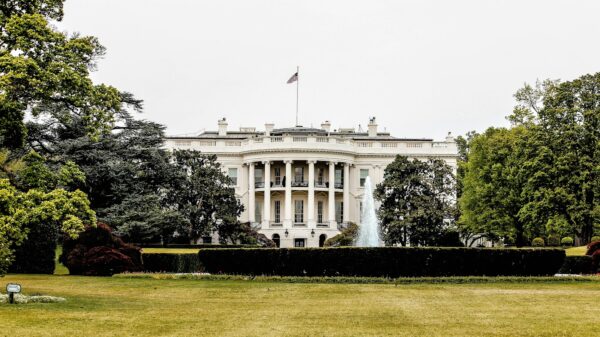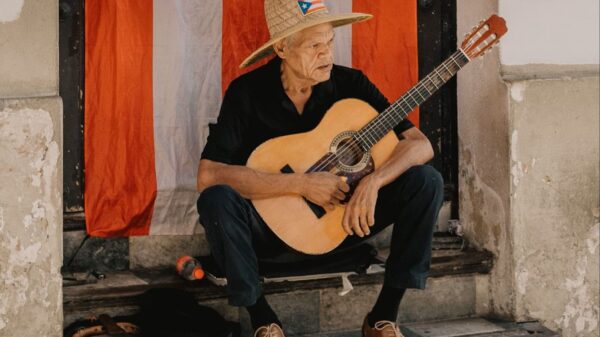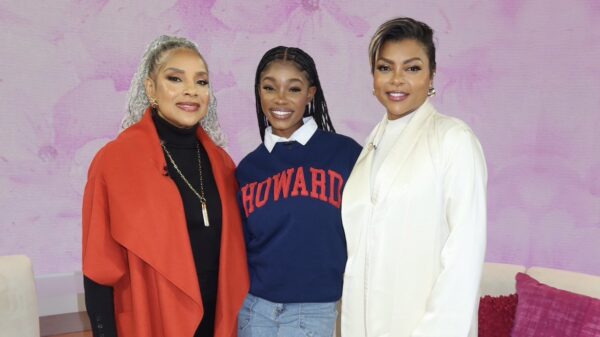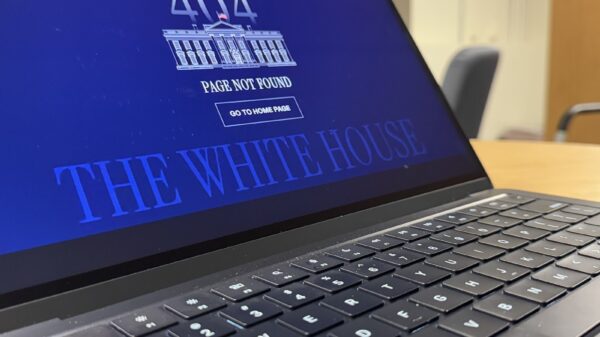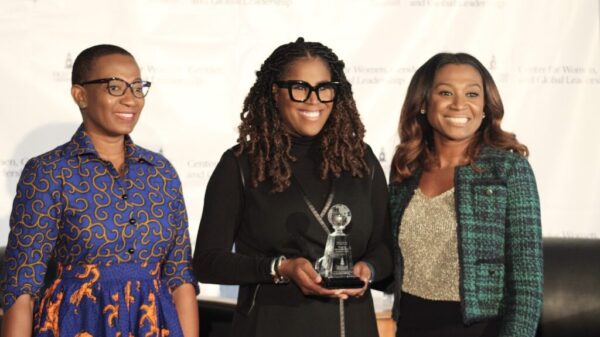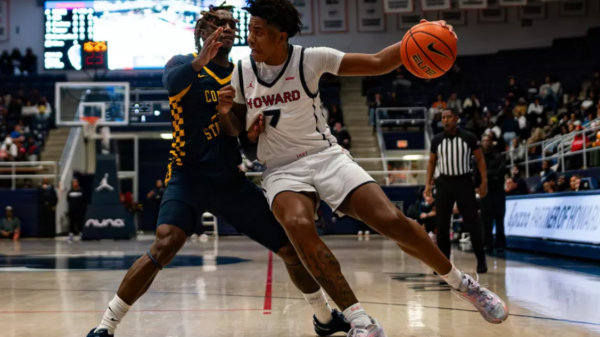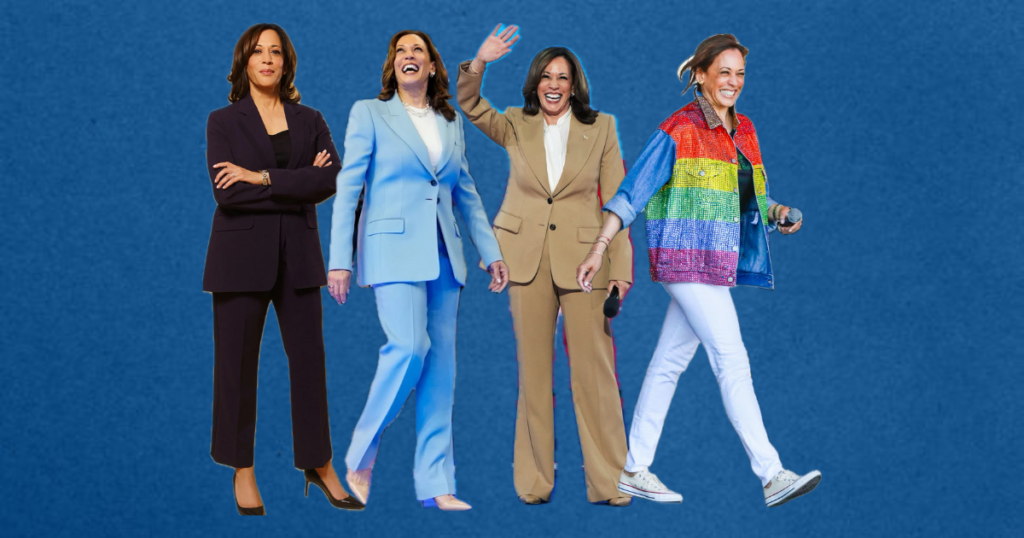
When Vice President Kamala Harris formally accepted her nomination to run for president at the 2024 Democratic National Convention, her speech wasn’t the only message she delivered on stage.
She wore a navy blue power suit designed by Chloé, a French luxury fashion house. The suit, estimated to cost over $3,000 like Chloé’s other high-end sets, was one of many similar outfits Harris has worn at events across the United States for her presidential campaign.
Stepping onto stages in a rainbow of brightly colored pantsuits, ranging from cobalt to lavender to baby blue, her appearance makes a statement about the history and future of women’s fashion and their relationship to politics.
As Jabrielle Shalem, a sophomore fashion design major, watched Harris in the outfit, she admired her for expressing her individuality while staying within the confines of being a female political figure.
“It really stood out to me, because I know that some female political leaders in the past, like Hillary Clinton, wore white, and she chose to wear blue,” Shalem said. “I thought that was a gentle way of pushing a new narrative, while still being within the safety net of what it could look like in her position.”
In the 1920s, fashion designer Coco Chanel introduced shoulder pads and invented the “power suit,” transforming women’s fashion from mostly conservative dresses. Dr. Elka Stevens, associate professor at the Chadwick Boseman School of Fine Arts, explained the history of the pantsuit and its association with power dynamics may be behind Harris’ choice to wear them.
“Women had to fight for those privileges that were typically associated with power, that were also associated with maleness or manhood,” Stevens said. “So it’s a way of defeminizing her so that she doesn’t appear as the weaker sex.”
Stevens said Harris’ career as a prosecutor in the public eye may have influenced her desire to shift the focus from her appearance and desexualize her body by wearing pantsuits, which are more masculine or gender-neutral.
In addition to pantsuits, Converse sneakers, pearl necklaces and straight hair, while an untraditional combination for politicians, have become staples in Harris’ wardrobe throughout the campaign trail.
Harris’ senior photo shows her wearing pearl necklaces at Howard as early as 1986, which is a connection to her membership in Alpha Kappa Alpha Sorority, Inc., founded on Howard’s campus. Pearls are the emblem of the sorority, and in a video with Cocoa Butter, Harris reflected fondly on the photo saying, “As you can see, pearls are not a new phenomena for me.”
In the same video, Harris explained she started blow-drying her long hair to make it “a little bit more manageable.” Many people, especially Black women, have commented on Harris’ hairstyle, calling it a silk press, which uses a blow dryer and flat iron to get straight hair.
In an interview with actress Keke Palmer, Harris said that is not her method.
“I don’t use a curling iron. It’s too much heat. I use a round brush. It takes a while, a boar bristle, and it takes a lot of heat,” Harris said.
Stevens sees the intentionality behind Harris pairing Converse with suits and pearls. What appears to be a contrasting style reaches a wide audience by appealing to multiple classes and styles, supporting her campaign values of being “for the people.”
“We can’t just ignore all of the subtle cues, it seems to me that her appearance is one that becomes more inclusive of a wider public than just focusing on a singular group,” Stevens said.
Jabrielle Shalem agreed with Stevens and said Harris’ style helps relate her to her constituents.
“It’s her way of showing that she’s down to earth for the people, and can connect with the people that she’s around while still being in her position,” Shalem said. “She’s still willing to tell about her policies, still willing to do the work that a political figure will do, but also being like, I’m coming to you on a more grounded level, and I’m going to see eye to eye.”
Shalem finds Harris is not just reaching across class lines, but generations as well, and that clothing can be a way for political figures to leverage support. Sophomore political science major Payton Wilson agreed.
“I think whoever styles her definitely knows what they’re doing. I think they go for that vibe, because she’s not one of the most serious politicians,” Wilson said. “So everybody, or at least people in our generation, tend to navigate towards people that they feel like they can relate to a bit more.”
In August, an article from Puck identified celebrity stylist Leslie Fremar as Harris’ stylist, adding to her team of professionals who curate her wardrobe for events. Stevens said she appreciates how Harris wears a large range of designers and represents the diversity of the fashion industry.
She cited Harris’ black sequin gown at the Congressional Black Caucus Foundation’s 2024 Phoenix Awards dinner in Washington, D.C. as an example. LaQuan Smith, a luxury fashion designer, created the dress.
“That was by a Black designer,” Stevens said. “And for me, that reminded me of like Michelle Obama, who would oftentimes rely upon new and emerging designers and designers of color to draw upon her look.”
Stevens highlighted that changes in leadership can affect the fashion industry itself. Conservative politicians tend to advocate for stricter foreign trade policies and to keep business in the United States.
“That’s something I think we have to take into account as we’re thinking about impact on fashion and the idea of the presidency, and how the presidency itself and policies produced by the administration can promote emerging designers or begin to hinder emerging designers,” Stevens said. “Or what happens when you are getting things produced overseas.”
Shalem sees a double standard between white politicians and politicians of color. She likes seeing the latter express themselves and their culture through clothing, and she thinks Harris could have even more flexibility to do this if she wins the election.
“For caucasian people, it’s a little different. The standard is a little bit lower. And so there wasn’t a lot of diversity, you know, there wasn’t a lot of different colored suits or ties or anything,” Shalem said. “They weren’t really pushing the envelope because they don’t have to. They are the envelope. But I think for political figures of color, it is a completely different ball game entirely.”
Payton Wilson said personal expression can be a smart political play.
“For politicians, for people who are trying to reach a public audience, absolutely,” Wilson said. “Especially if those public audiences are of this generation it’s best to showcase your policies and your personality in your style.”
Stevens, who is also a class of 1990 alumna, said if Harris is elected, Howard students, especially young women, will take cues from her in terms of her outfits, hairstyles and how she carries herself.
“It doesn’t stop just at the fashion, but thinking that, ‘Oh, well, maybe I can be engaged in politics. Maybe I can go to law school,’” Stevens said. “Maybe people who hadn’t thought about it before will give it a second thought because they’re at Howard walking in the same spots where she was at some point.”
Copy edited by Anijah Franklin










